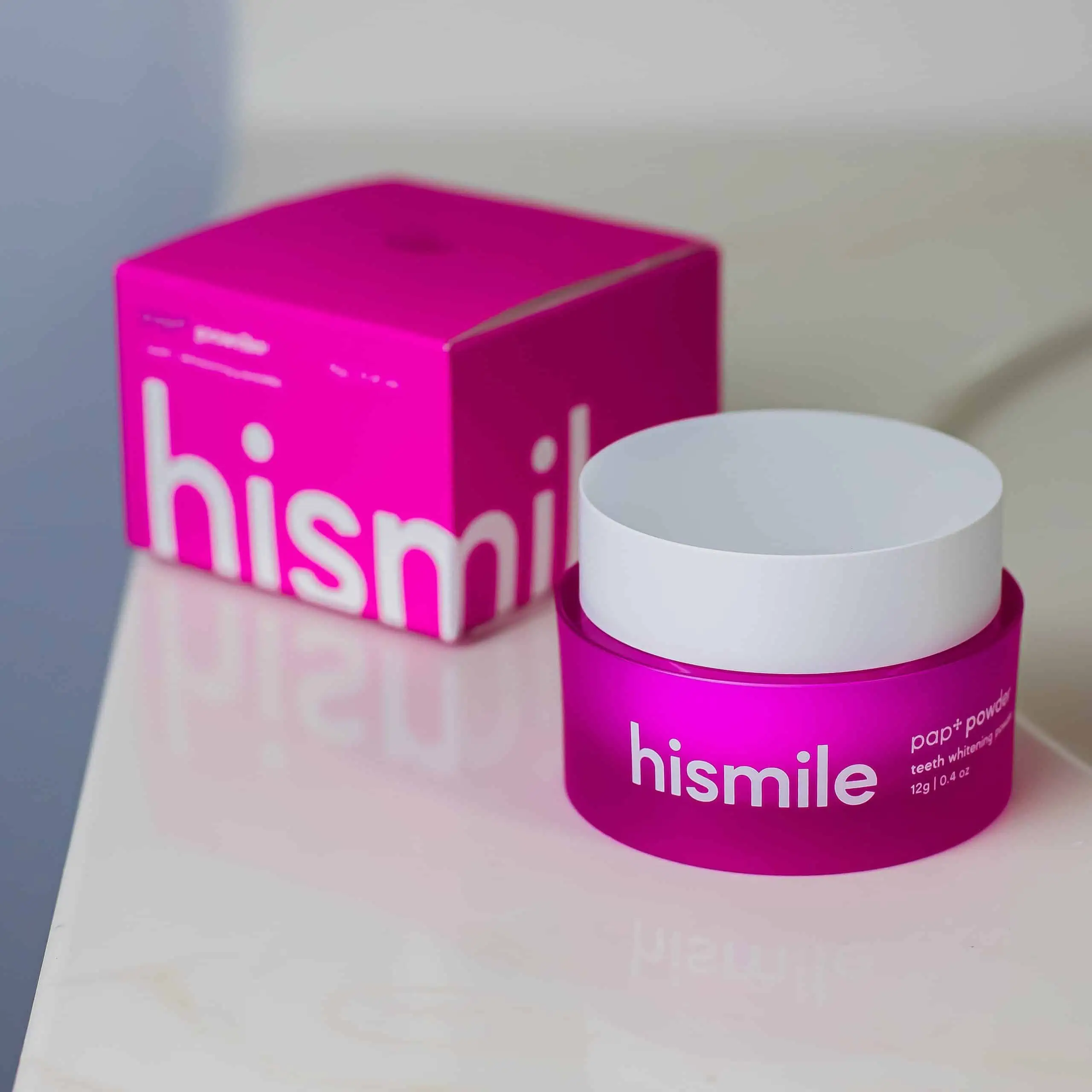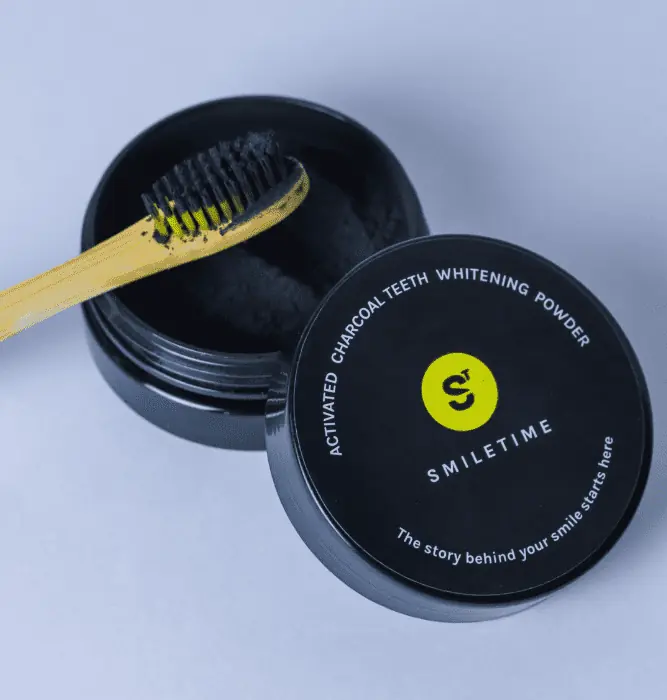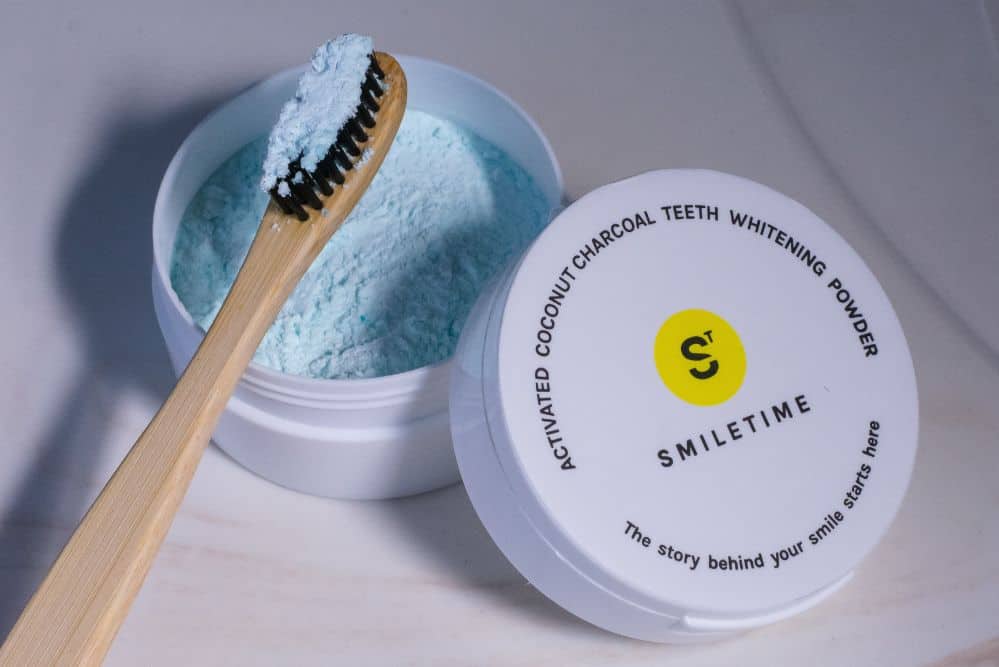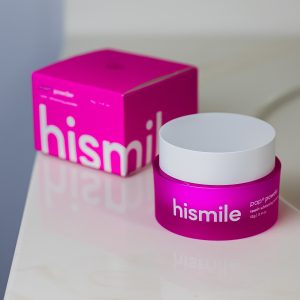If your teeth aren’t as bright as you’d like them to be, have you thought about using teeth whitening powder? There are plenty of ways to whiten your teeth without having to resort to expensive dental procedures.
Many people find that using teeth-whitening powders can help immensely in restoring the natural white colour of their teeth, and there are plenty of different powders available on the market today.
This article will answer all your questions about teeth whitening powder including:
- What is teeth whitening powder?
- What are the different types available?
- How do you use whitening powder?
- What are the pros and cons?
Keep reading to learn everything you need to know about teeth whitening powders, including what they are, how they work, and the best products in the UK right now!
The following table summarises the whitening powders discussed in this article:
| ||
| ||
| ||
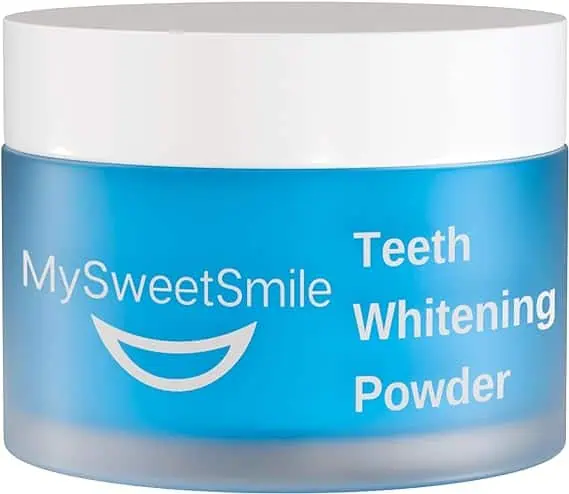 |
| |
What are the best teeth-whitening powders in the UK?
There is a massive selection of teeth-whitening powders to choose from in the UK. Our top picks include Hismile and SmileTime, each including different ingredients. Let’s take a closer look so you can get a better idea of which product might be right for you.
Hismile
Hismile offers peroxide-free teeth whitening products including whitening gels, powders, toothpaste, mouthwashes, and more.
Their PAP+ teeth whitening powder is designed to be used with your regular toothpaste so it fits seamlessly with your oral hygiene routine. It is a peroxide-free whitening treatment that uses the Hismile PAP+ formula to not only whiten teeth without sensitivity but also remineralise enamel as it does so.
Ingredients:
- Phthalimidoperoxycaproic acid (PAP)
- Hydroxyapatite (HAp)
- Potassium Citrate
Hismile’s teeth whitening powder contains a nano-synthetic version of hydroxyapatite which is a naturally occurring mineral in our enamel. As an ingredient in the whitening powder, it helps remineralise enamel while it whitens. Potassium citrate, another ingredient included in the whitening powder, works to soothe any pre-existing teeth sensitivity.
SmileTime
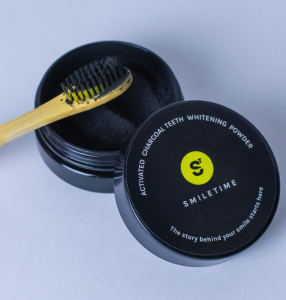
SmileTime is a UK-based company that provides a wide range of whitening products and offers a subscription service for your favourite products. They have two different teeth-whitening powders that include natural ingredients.
The Charcoal Teeth Whitening Powder is made from activated charcoal and helps to trap and draw in toxic substances from your teeth and remove surface stains. While it is safe to use on your teeth and designed for sensitive teeth, it does say on the SmileTime website that this powder is for use over short periods to whiten your smile.
Ingredients:
- 100% natural activated charcoal
- Menthol
- Sweetener
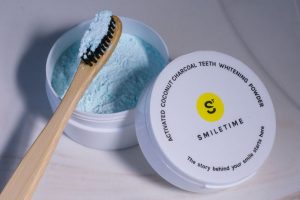
The Natural Coconut Teeth Whitening Powder is made from coconut which helps to remove stains and plaque from your teeth without creating any mess. It is designed for sensitive teeth and does not damage the enamel or cause sensitivity.
Coconut is a popular natural method for whitening teeth, although it is usually used for oil-pulling rather than in powder form.
Ingredients:
- 100% natural coconut shell
- Bentonite clay
- Peppermint oil
If you like the sound of both of these types of whitening powders, SmileTime offers a Day and Night Natural Whitening Kit that includes both and two bamboo toothbrushes!
MySweetSmile
MySweetSmile Teeth Whitening Powder claims to remove the stains on your teeth caused by everyday drinking tea, coffee, red wine or smoking. Unlike other types of whitening powders, this one includes Pentasodium Triphosphate (PT) to oxidise stains without damaging your tooth enamel.
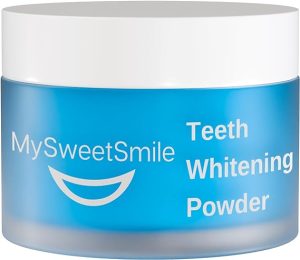
Their whitening formula is free from peroxides and other harsh chemicals, so it’s safe to use at home.
Ingredients:
- Calcium Carbonate
- Pentasodium Triphosphate
- Menthol
- Sodium Lauryl Sulfate
- Sodium Saccharin
- Mentha Viridis Leaf Oil
- Allantoin
- Strontium Chloride Hexahydrate
- Limonene
To remove stains and plaque, dip your toothbrush into the powder and brush for 4 minutes. Your teeth will be whiter, brighter, and cleaner!
What is teeth whitening powder?
Teeth whitening powder, as the name suggests, is a type of powder you can use to whiten your teeth. They typically use abrasives to get rid of stains, but some include active whitening ingredients.
Toothpaste can only go so far in removing these stains, leaving your teeth looking dull and yellow. Whitening powders have abrasive ingredients to scrub away surface stains. This can make them more abrasive than toothpaste, so they are not recommended for those with sensitive gums or receding gum lines.
There are a few different types of teeth whitening powders available over-the-counter and online. These versions are relatively affordable, typically costing around £10 for a tub that can be used more than once.
Over-the-counter teeth-whitening powders can contain whitening ingredients such as PAP (Phthalimidoperoxycaproicacid), hydrogen peroxide or activated charcoal. These are either used in conjunction with other active components, or they may be the sole ingredient of a tooth-whitening powder.
The choice of which product is best depends on your needs and whether you have any sensitivities towards certain chemicals or colourants that may be present in a particular tooth-whitening product.
Many people find that hydrogen peroxide can make their teeth feel sensitive and might prefer a peroxide-free whitening powder. Others find that charcoal powders are too abrasive for their needs.
What are the different types of whitening powders?
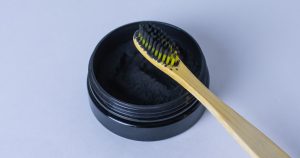
There are two main types of tooth-whitening powders, black and white. Black whitening powder contains activated charcoal which is touted by its peddlers to remove stains from coffee, wine, tobacco, etc. White powders are often made from a PAP formula or a hydrogen peroxide formula, both of which break down stain-causing compounds on contact.
Charcoal does not change the colour of your teeth but may remove stains making them appear whiter for a short period only. It’s claimed to be particularly good at removing stains that would otherwise be resistant. However, studies have shown that it can be quite abrasive on your tooth enamel.
Activated charcoal is a popular natural teeth whitening method. You can find whitening strips, toothpaste, mouthwashes and even toothbrushes that contain activated charcoal.
White powder changes your tooth colour temporarily but in some cases can leave behind an unpleasant taste in your mouth afterwards or teeth sensitivity. White powders can contain different whitening ingredients, some can include hydrogen peroxide and others use a more gentle ingredient, PAP.
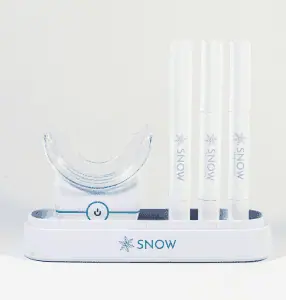
- Our #1 Teeth Whitening Kit
- Snow offers lasting results in just 9 minutes a day and satisfaction guaranteed or your money back.
- Fast Results: Noticeably whiter teeth after just one use, with full results in 21 days.
- Safe for Sensitive Teeth: Designed to be pain-free, even for those with sensitivity.
- Easy to Use: A convenient and straightforward application process.
- Celebrity Endorsed: Trusted and used by celebrities for a brighter smile.
How do you use tooth whitening powder?
To use a tooth whitening powder, you can use it with toothpaste or by itself.
To use it with toothpaste:
- Apply your usual toothpaste to your toothbrush
- Dip it in the whitening powder entirely coating the toothpaste
- Brush your teeth as usual
- Rinse out your mouth
To use the whitening powder by itself:
- Dip your wet brush into the powder
- Brush your teeth for about two minutes
- Rinse out your mouth
Be sure not to inhale any of the powder or swallow any of the powder!
The following video from SmileTime shows you how to use activated charcoal teeth whitening powder:
What are some teeth-whitening alternatives?
There are a variety of at-home teeth whitening alternatives to choose from, including teeth whitening kits, whitening strips, toothpaste and mouthwashes. There is always the option of getting your teeth professionally whitened but that can be quite a bit more expensive than at-home whitening methods.
In case you don’t want to spend the extra cash on whitening your teeth at the dentist, home whitening kits are a good alternative. Whitening kits generally include a mouthpiece with an LED light and whitening gel.
Whitening strips do not include an LED light, but they contain similar ingredients. Strips are easier to use on the go as you can just pop them on your teeth and head out!
Hismile and SmileTime again use the same ingredients in their whitening strips as their whitening powders. SmileTime’s whitening strips include charcoal and coconut, and Hismile whitening strips include PAP+ as the active whitening ingredient.
What are the pros and cons of teeth-whitening powders?
Teeth whitening powders are a great alternative for those who find whitening strips awkward, whitening trays hard to use, or who want an easy way to whiten teeth without making any changes. Let’s take a look at some of the pros and cons of teeth-whitening powders:

Pros
- Easy to use
- Inexpensive
- Simple to add to your oral hygiene routine
Cons
- Can be abrasive on tooth enamel
- Harsh on sensitive teeth and gums
- Can be messy, especially if using charcoal powders
- Not as effective as other whitening methods
Teeth whitening powders are generally not as effective as other teeth whitening methods, but they can be great to maintain a white smile in between treatments.
Conclusion
Teeth whitening powders are a great way to remove surface stains from your teeth and maintain white teeth after an alternative whitening treatment. They are a lot more affordable and much more convenient than other teeth whitening solutions. However, it’s important to keep in mind that whitening powders are not as effective as other teeth-whitening methods.
If you’re interested in using a teeth whitening powder, it’s best to find one that matches your needs and suits your needs. There are various different types with different ingredients, so make sure you look carefully at each one.
Once you have found a teeth-whitening powder, it’s very simple to add to your oral hygiene routine!
ScienceDirect. Efficiency of activated charcoal powder in stain removal and effect on surface roughness compared to whitening toothpaste in resin composite: In vitro study. Consulted 17th October 2022.





